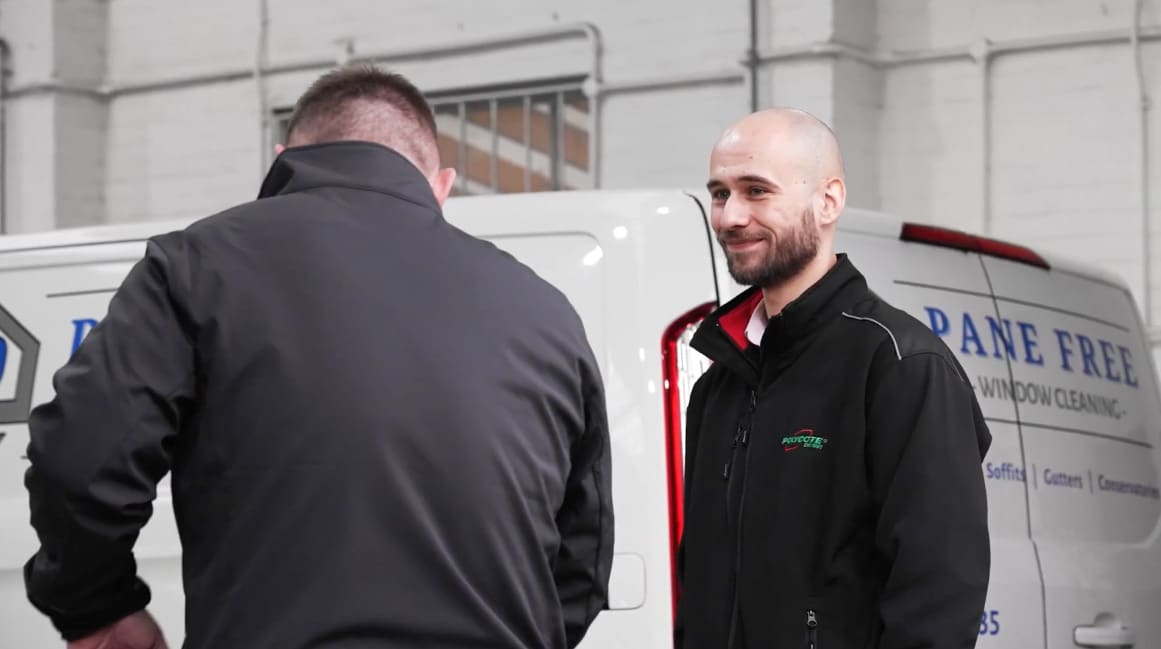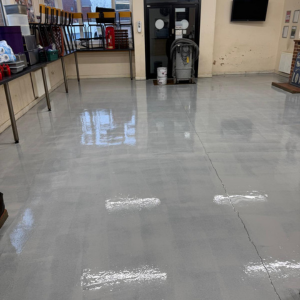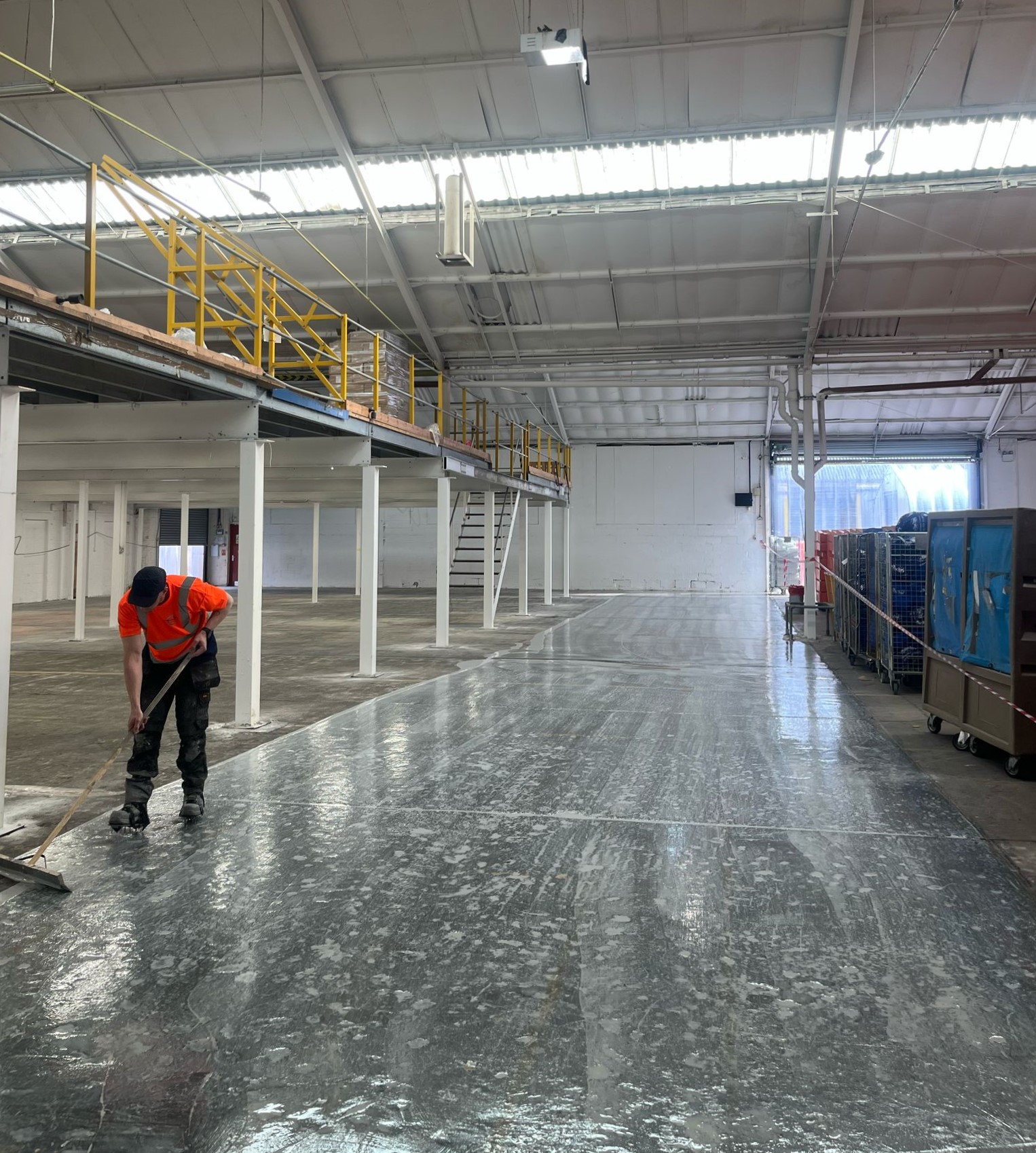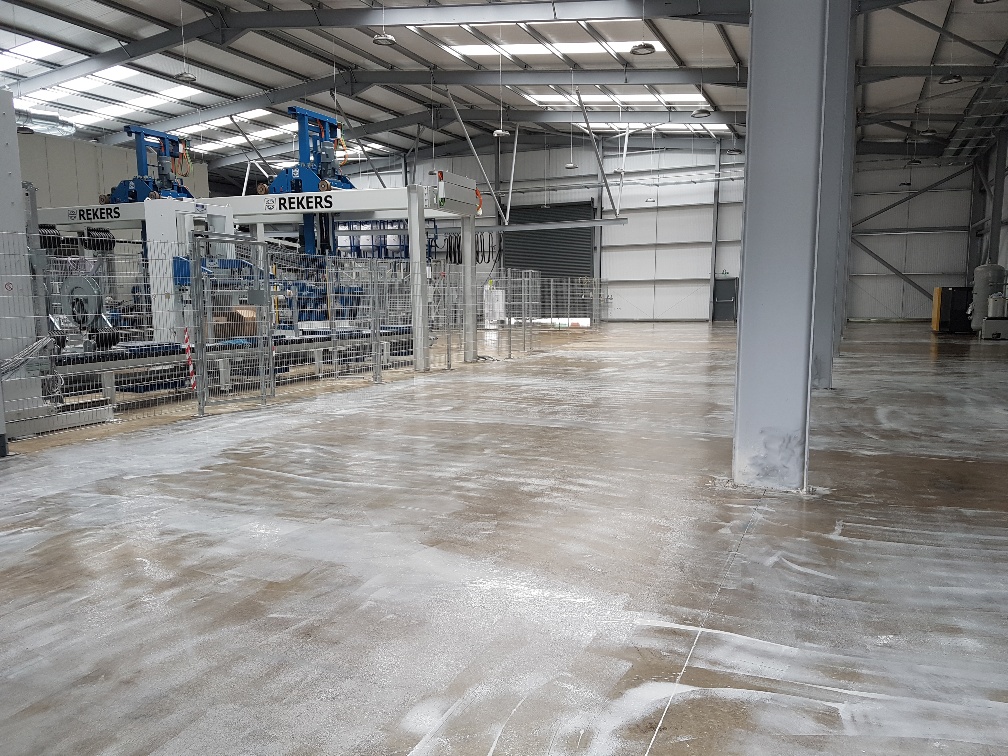Why You Should Use An Epoxy Primer

Deciding whether to use an epoxy floor primer is a subject that is often overlooked by many businesses that are investing in a premium floor coating. In fact, many people aren’t aware that floor primers exist, believe they aren’t needed, or just see it as an additional cost.
The installation of a new floor requires a lot of carefully considered processes. Floor preparation, including floor primer, can save you time, effort, and money.
Deciding whether to use an epoxy floor primer is a subject that is often overlooked by many businesses that are investing in a premium floor coating. In fact, many people aren’t aware that floor primers exist, believe they aren’t needed, or just see it as an additional cost.
The installation of a new floor requires a lot of carefully considered processes. Floor preparation, including floor primer, can save you time, effort, and money.
Benefits of an epoxy floor primer
There are numerous benefits in applying an epoxy floor primer prior to coating your flooring:
- Epoxy primers are thin, providing a better adhesion as it penetrated into the concrete substrate allowing a better bond.
- Primers provide a better chemical bond when using thicker epoxy base coats. This results in a longer lasting and a more durable concrete floor coating.
- Elimination of air bubbles and pinhole that are formed due to the outgassing of the concrete*
- Ability to achieve a higher dry film thickness and coating uniformity as it is not soaking into the concrete.
- Effective in providing a moisture resistance for concrete flooring that has moisture problems.
- Primers form a tenacious waterproof barrier for concrete flooring that is devoid of an effective Damp Proof Membrane (DPM) which usually results in virtually any paint lifting and peeling off the surface.
- Most epoxy primers are moisture tolerant and work well when being applied on concrete that has not fully dried from being cleaned or acid etched.
- Some primers are specifically manufactured as oil blocking primers. These solvent based primers are designed to cover concrete that has been contaminated by oil and can’t be completely cleaned.
There are numerous benefits in applying an epoxy floor primer prior to coating your flooring:
- Epoxy primers are thin, providing a better adhesion as it penetrated into the concrete substrate allowing a better bond.
- Primers provide a better chemical bond when using thicker epoxy base coats. This results in a longer lasting and a more durable concrete floor coating.
- Elimination of air bubbles and pinhole that are formed due to the outgassing of the concrete*
- Ability to achieve a higher dry film thickness and coating uniformity as it is not soaking into the concrete.
- Effective in providing a moisture resistance for concrete flooring that has moisture problems.
- Primers form a tenacious waterproof barrier for concrete flooring that is devoid of an effective Damp Proof Membrane (DPM) which usually results in virtually any paint lifting and peeling off the surface.
- Most epoxy primers are moisture tolerant and work well when being applied on concrete that has not fully dried from being cleaned or acid etched.
- Some primers are specifically manufactured as oil blocking primers. These solvent based primers are designed to cover concrete that has been contaminated by oil and can’t be completely cleaned.
Choosing the correct floor primer
Professional primers are engineered to penetrate deep into the pores of a substrate, creating a strong mechanical bond. Thanks to the inclusion of adhesion promoters, their grip is often even stronger than that of the topcoat. Specialist formulations are available to handle a wide range of conditions – from rising damp and oily surfaces to dusty, unstable, or difficult materials such as concrete, ceramic, metal, and marble.
Because professional primers penetrate so effectively, their surface build is typically lower, yet they form an exceptional chemical bond with the subsequent topcoat or screed. They also serve to seal the surface against air escaping from within the slab due to temperature or humidity changes, known as concrete outgassing.
Rising damp, often caused by an inadequate or missing Damp Proof Membrane (DPM) or a high water table, can lead to serious flooring issues. Using a primer designed to resist water pressure from below and block rising moisture is therefore essential.
With their low viscosity and thin film build, primers soak deeply into the surface, sealing voids and divots. This reduces the likelihood of trapped air forming bubbles—and if it does occur, the thin resin typically reflows to refill the space, ensuring a smooth, stable finish.
Professional primers are engineered to penetrate deep into the pores of a substrate, creating a strong mechanical bond. Thanks to the inclusion of adhesion promoters, their grip is often even stronger than that of the topcoat. Specialist formulations are available to handle a wide range of conditions – from rising damp and oily surfaces to dusty, unstable, or difficult materials such as concrete, ceramic, metal, and marble.
Because professional primers penetrate so effectively, their surface build is typically lower, yet they form an exceptional chemical bond with the subsequent topcoat or screed. They also serve to seal the surface against air escaping from within the slab due to temperature or humidity changes, known as concrete outgassing.
Rising damp, often caused by an inadequate or missing Damp Proof Membrane (DPM) or a high water table, can lead to serious flooring issues. Using a primer designed to resist water pressure from below and block rising moisture is therefore essential.
With their low viscosity and thin film build, primers soak deeply into the surface, sealing voids and divots. This reduces the likelihood of trapped air forming bubbles—and if it does occur, the thin resin typically reflows to refill the space, ensuring a smooth, stable finish.
Do I always have to use a primer?
In cases where the correct surface preparation has been undertaken, and the surface is sound (and you don’t have other overriding factors such as oil and damp, etc), then you have a very good chance that the coating will not fail.
However, with all the benefits that can be gained from using an epoxy floor primer, it is preferable for the assurance of the best adhesion, a long-lasting investment, and a durable floor.
Find the perfect solution for your concrete flooring and shop our range of epoxy primers.
*Please note that air entrapment can also be created by incorrect mixing whereby the resin has been mixed too quickly, normally with a drill paddle.
In cases where the correct surface preparation has been undertaken, and the surface is sound (and you don’t have other overriding factors such as oil and damp, etc), then you have a very good chance that the coating will not fail.
However, with all the benefits that can be gained from using an epoxy floor primer, it is preferable for the assurance of the best adhesion, a long-lasting investment, and a durable floor.
Find the perfect solution for your concrete flooring and shop our range of epoxy primers.
*Please note that air entrapment can also be created by incorrect mixing whereby the resin has been mixed too quickly, normally with a drill paddle.












